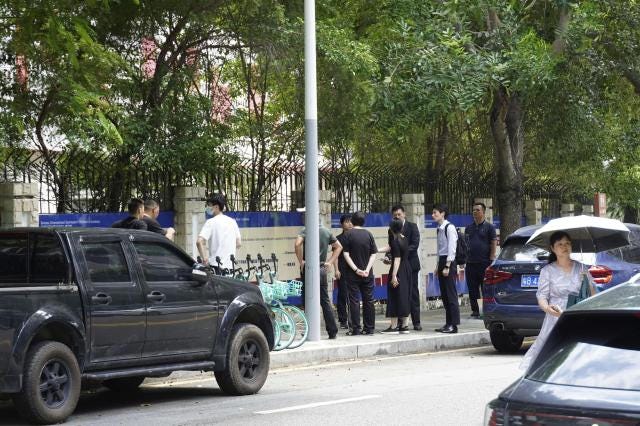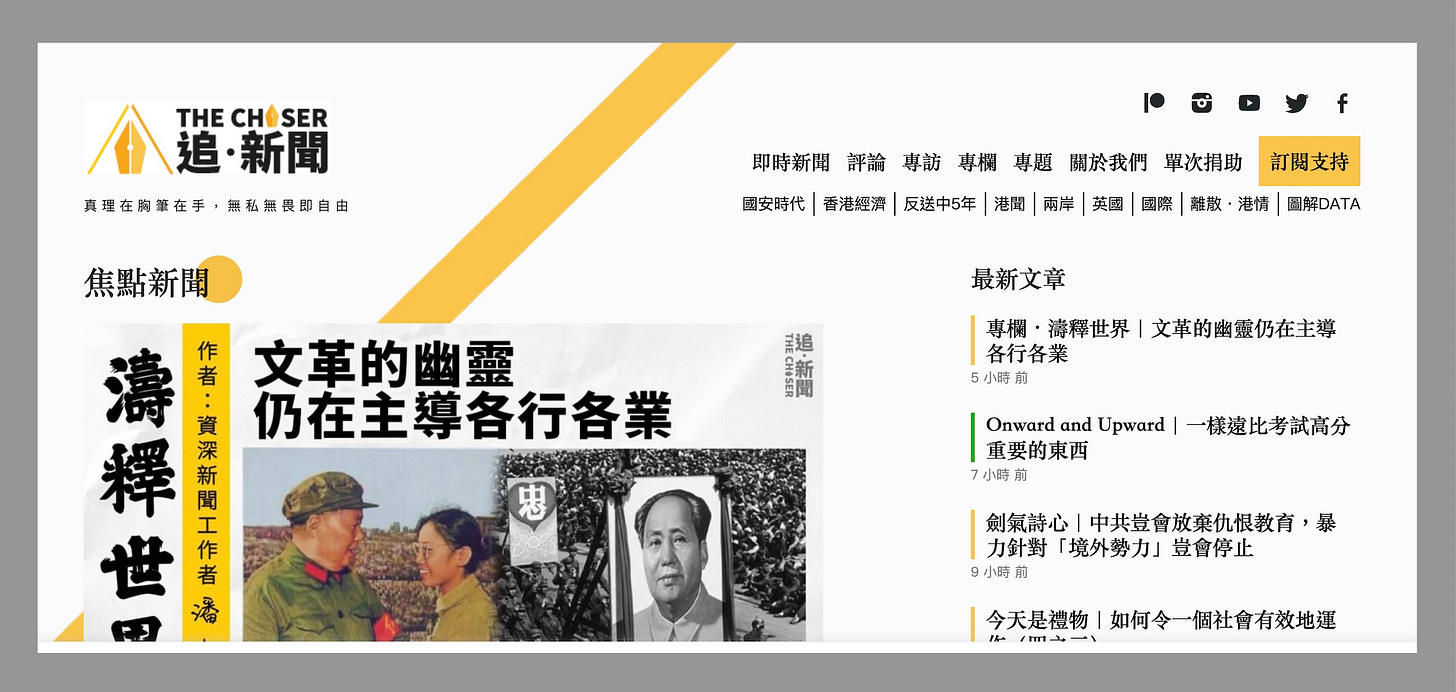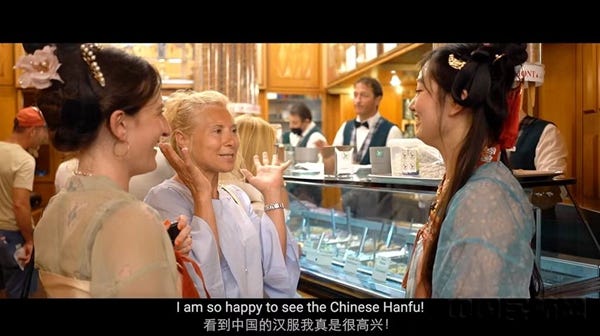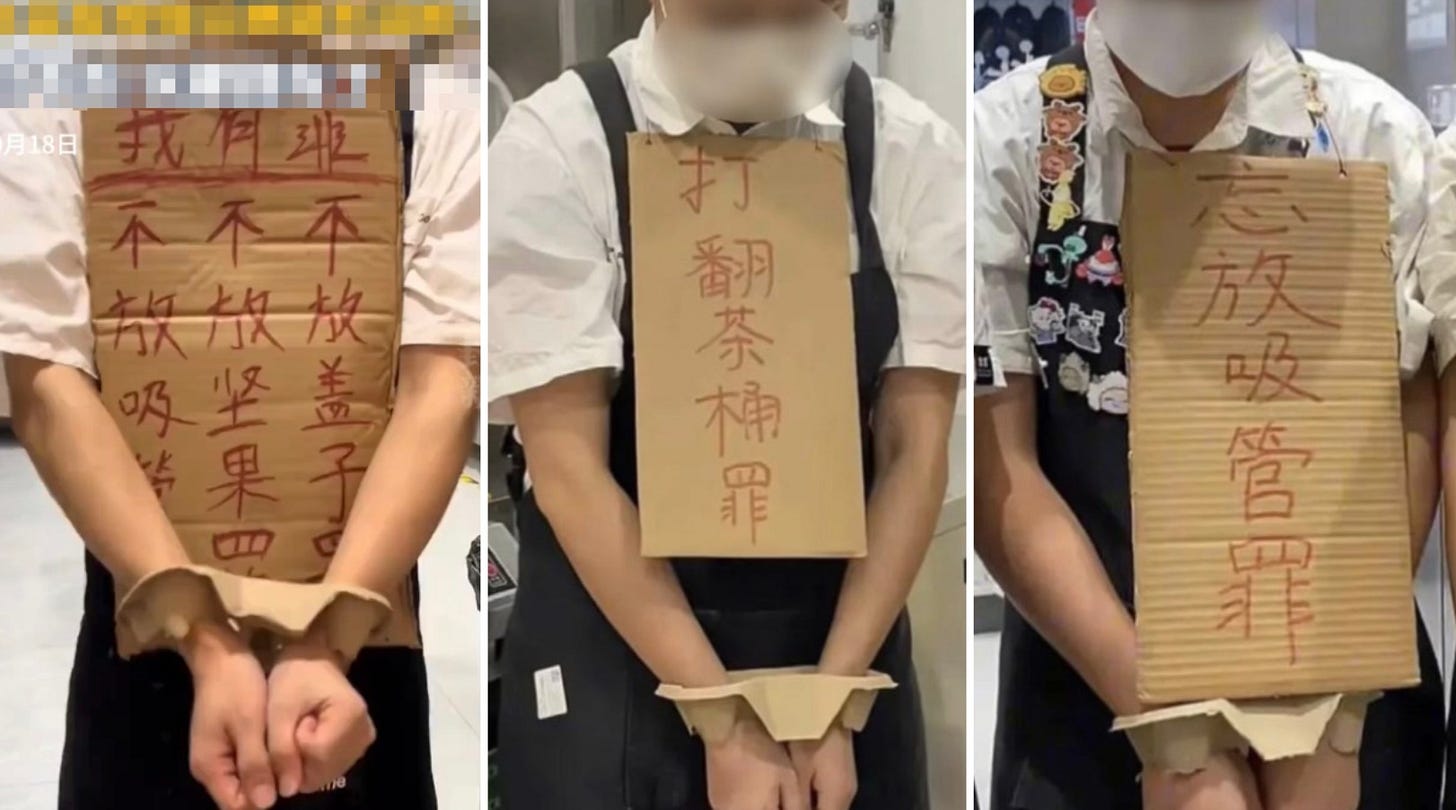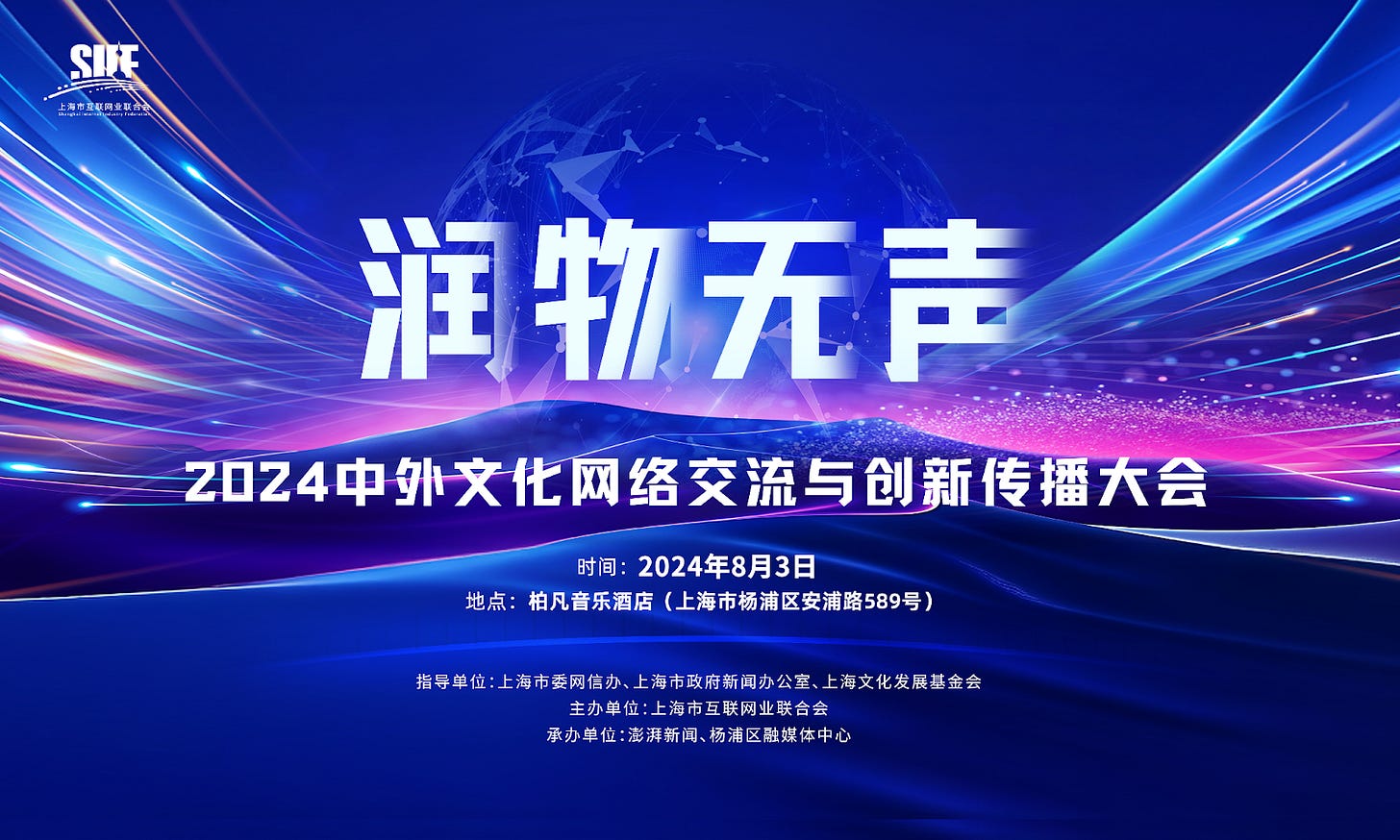Lingua Sinica Newsletter, 26 September
News, analysis, and commentary on Chinese-language media from the PRC and beyond.
Welcome back to Lingua Sinica.
In a couple of days, it will have been ten years since the outbreak of the Umbrella Movement protests in Hong Kong. From September 28 to December 15, 2014, protesters occupied streets in three of the territory’s busiest districts to demand the right to elect their leaders. Known locally as “universal suffrage,” this was promised to them in Hong Kong’s post-handover constitution but denied them in a ruling by the National People’s Congress Standing Committee in August of that year.
When the protests broke out, I was working at a PRC-owned magazine in Shanghai. I flew back home to Hong Kong and filed on-the-ground reports for several weeks before our censors told the editor-in-chief to rein me in. In hindsight, it surprises me to think that I could report the story at all and somehow keep my job. Would someone in my position have the same leeway today?

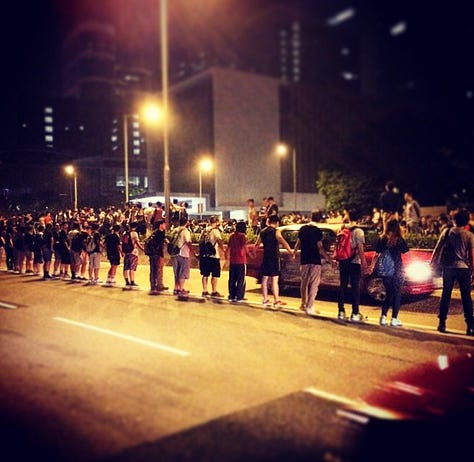


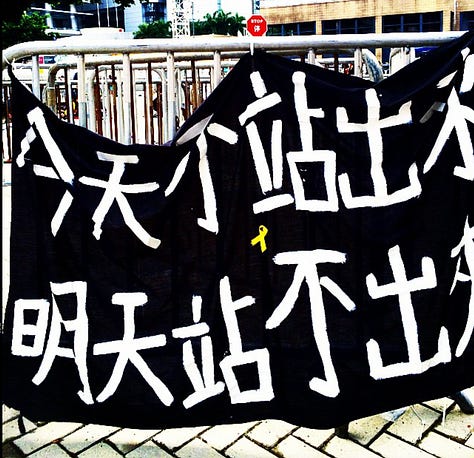

The Umbrella Movement was a watershed for the city as a whole. But on a personal level, it also affected the course of my life and career in ways I still feel today. Even though I was born in Hong Kong, it was the first time that I actually felt like a Hongkonger. These were the days when the tired old stereotype of Hong Kong people as apolitical, materialistic, and self-interested still had credence. Yet everyone I met at the occupation sites was deeply engaged, creative, passionate, and committed to making the city they loved a freer, fairer, more open place. It was a side of Hong Kong I saw little of before but was always there, just below the surface.
Looking back on the Umbrella Movement, it’s easy to focus on its failures. The protests failed to achieve any of its objectives and this unfinished business led to protesters’ desperate last stand in 2019-20 and now a national security crackdown that shows no signs of abating. In its wake are so many broken dreams, frustrated hopes, families torn apart, people left in exile — and media facing unprecedented threats and challenges. As I write, former Stand News editors Chung Pui-kuen and Patrick Lam await sentencing after being found guilty of publishing "seditious" articles last month.
But I also treasure my memories from that time. It was the first time the whole world saw the Hong Kong I know, love, and proudly call home. That Hong Kong has now been scattered around the globe and has been forced back beneath the surface at home, but it hasn’t died. If you know where to look, it’ll always be there. One day, it may even shine as bright as it did for those 79 days in 2014.
Ryan Ho Kilpatrick
CMP Managing Editor
(NOT) IN THE NEWS
After a Savage Attack, Brutal Silence
The brutal killing of a Japanese schoolboy in the Chinese city of Shenzhen last week has made headlines across the world. The wider context of the tragedy raises serious questions about how it might be linked to decades of anti-Japanese education, entertainment, and cultural conditioning in China. The attack occurred on the anniversary of the Mukden Incident that began Japan’s invasion of China in 1931, and just months after another nearly deadly attack on a Japanese mother and her child in another city. The connection between this toxic nationalism and real-life violence was underscored by the reaction of one Sichuan county magistrate, who wrote online that the boy’s death mattered little since “our rule is killing Japanese” (我们的纪律就是杀日本人) — suggesting China’s historical grievances made violence against Japan a matter of obligation.
But these are serious questions China’s media are not asking, or cannot ask.
How the country’s media have reported — or not reported — the incident domestically is a reminder both of how stringent controls have become and how detrimental this atmosphere is to discussions of the darker undercurrents of contemporary Chinese society.
For more on this case study on how Chinese media handle sensitive stories, read Alex Colville’s take on the CMP website.
SPOTLIGHT
A Heartfelt Letter
As we just discussed, the tragedy at the Japanese school in Shenzhen has been followed by a disturbing silence thanks to active censorship by the authorities. But the case has invited commentary, and some soul-searching, in Chinese-language media outside the PRC — the kind that has not been readily possible inside.
One particular focus of discussion was the surfacing on September 20, two days after the attack, of a letter attributed to Koyama Junpei (小山純平), identified as the father of the boy who was killed. Emerging on China’s internet last Friday, the letter offered a short but intimate portrait of the boy, who had a keen eye for the smallest of creatures, and especially loved insects and reptiles, it said. The letter was open-hearted in its tone, urging the public against hate: “We don't hate China, and we don't hate Japan,” it read. “My only wish is that such a tragedy will never happen again.”

The letter quickly sparked a flurry of conversation on Chinese social media. Some questioned its authenticity, while others shared in the father’s grief. “As a Chinese father,” said one, “I believe that your choice not to blame an entire people or country for this tragedy shows your deep understanding and tolerance of human nature.” But within hours, nearly all posts sharing the letter on social media had been removed, leaving only traces of the conversation.
Nikkei Asia reported on September 21, said Taiwan’s Liberty Times, that it had been unable to confirm the authenticity of the letter but said sources at the Japanese Consulate in Guangzhou had not denied its authenticity. In a report this week, Initium Media said it has spoken to a Chinese journalist who confirmed the authenticity of the letter, which they said had been written in Japanese by the father and then translated into Chinese. The outlet followed up on Tuesday with an in-depth op-ed on the tragedy by Yu Daiyan (俞岱巖), which explored the complex aspects of anti-Japanese sentiment and nationalism in China — including the growing online patriotic traffic (愛國流量) market in China after 2020 — and acknowledged also important signs of popular shock and remorse over the recent killing that worked against the grain of official censorship. It noted, for example, that the Japanese Consulate in Guangzhou has said that the Shenzhen Japanese School has received more than 1,000 bouquets of flowers from the public, and more than 3,000 messages of condolence.
A commentary in Taiwan’s World Journal (世界日報), which is owned by United Daily News (UDN), focused more squarely on the “xenophobic education” (仇恨外國教育) of the Chinese Communist Party. “For decades, Japan has provided funds to help China's development,” the paper wrote, “while the CCP has used anti-Japanese dramas to promote anti-Japanese propaganda.” The commentary noted too that Russia, which still holds territory in the Russian far east once belonging to China, is today a “no limits” partner.
In an op-ed yesterday, Taiwan’s Want Daily (旺報), a pan-blue media owned by the food and media conglomerate Want Want, said the Shenzhen killing had case “an even deeper shadow” over the already strained Sino-Japanese relationship. The outlet spoke out against online nationalism in China pushed by influencers, saying that anti-Japanese animosity should not be confused with patriotism.
TRACKING CONTROL
Hong Kong: By Invitation Only?
This week, Hong Kong immigration denied entry to French AP photojournalist Louise Delmotte. Her case was the latest in a series of visa rejections and deportations of foreign journalists. Since 2018, at least six others have been denied visas to work in the city, which for decades was a bastion of the free press and a hub for international media in the region. In addition to high-profile cases at the Financial Times, Bloomberg, Hong Kong Free Press, The New York Times, and The Economist, I’m aware of two other journalists at international newsrooms who have had their visa applications denied by the authorities but have not yet gone public with their cases.
On the same day that Delmotte was sent back to France, the local state-run newspaper Wen Wei Po (文匯報) published an op-ed urging local authorities to "actively invite international media and netizens to come to Hong Kong for on-site visits" and see the truth for themselves — an antidote, it suggested, to the “smears and lies” circulating abroad about the city. This is a bald-faced contradiction. How, after all, can foreign reporters tell the world about the real Hong Kong if they keep getting turned away?
The operative part of that sentence, though, may be “invite.” Inviting compliant overseas media to participate in carefully orchestrated press tours and amplify the government’s messaging has long been the model in other “restive regions” of the PRC, such as Tibet and Xinjiang. In the latter, critics are continually invited to see the reality for themselves — while being cautioned they can only do so under the careful supervision of government minders. For an in-depth look at how China stacks the deck in its relations with foreign media — even manufacturing the “foreign” — see our investigative report earlier this summer on China-Arab TV. Hong Kong might be heading in this direction.
Of course, Hong Kong is not there yet. Many international newsrooms have scaled back local operations but continue to maintain robust coverage. Local outlets, though increasingly careful to avoid the fate of their jailed colleagues, also still provide critical on-the-ground coverage. The pages of state-run outlets like Wen Wei Po, however, can be a reliable bellwether for where authorities want to take things. As the expulsion of critical foreign journalists becomes the norm in Hong Kong, "invitation-only" access to the city becomes more and more plausible.
RED LINES
Weaponizing Certainty in the Classroom
When it comes to education, Xi Jinping has one overriding, unoriginal idea: absolute Party control.
“Only madmen are certain and resolute,” Michel De Montaigne wrote in his famous essay On the Education of Our Children. These were, and still are, wise words about the need for doubt and humility in the face of learning. Across five centuries, they offer a knowing twinkle as we turn to Xi Jinping’s latest book, On Education (论教育), in which the CCP general secretary could not be more certain or resolute about the nature of education. Released on September 8, the book is a collection of official speeches since May 2013. State media have heavily promoted the collection this month, and one philosophy professor warmly referred to it as “a roadmap for student development.”
What does Xi’s On Education teach us?
Lesson One: The Party Rules All
At the risk of disappointing our readers, the first of four key principles of education laid out in the collection, taking up more than a third of the full-page treatment in yesterday’s edition of the People’s Daily, is “adhering to the Party's overall leadership of the cause of education." The section kicks off with that old Mao-inspired chestnut about how “the Party rules all.” The second key principle is fostering “moral integrity” (立德树人), which is core, says the paper, to ensuring CCP rule and social stability. Third is the need to maintain a “people-centered” (人民为中心) approach. That hardly sticks considering both the first and second principles have held up the Party and its politics as core — but of course students of CCP discourse know that “people-centered” means Party-led. Finally, comes the need to promote “innovation,” particularly in science and technology, which is crucial in encouraging what the leadership calls “Chinese-style modernization” [More in our CMP Dictionary].
With its mind-numbing design, an expanse of completely unbroken pale yellow with a red title, and the general secretary’s byline, this is one book that really can be judged by its cover. At least there is plenty of space for classroom doodles. Students, get out your crayons.
NEWSMAKERS
Chasing Substance on Hong Kong
Looking for critical news and commentary on the territory? You might need to look abroad.
As the 10th anniversary of Hong Kong’s Umbrella Movement approaches, it’s a great time to take stock of Chinese-language media in the territory. While we should recognize that the “death of Hong Kong” narrative is often overplayed in a way that disrespects the media still actively struggling there — including outlets we’ve profiled such as The Witness (法庭線) — it is also true that one of the most active trends is an active and growing movement of new Hong Kong diaspora media (離散媒體). Here in Taiwan, we have examples like Flow HK (如水), founded by Hong Kong exiles in 2021, and Photon Media (光傳媒), with whom we cooperated earlier this year for an in-depth look at the state of independent publishing in Hong Kong.
A Sense of Mission
But there are a growing number of diaspora outlets around the world, including in the UK, a key destination for permanent residents of Hong Kong who have BNO status. One of these outlets, founded in the UK in 2022, is The Chaser (追新聞), a new independent diaspora news platform formed by former Hong Kong journalists — its name literally translates to “chasing the news.” The Chaser says its mission is threefold: to “safeguard freedom of the press, defend democracy and human rights, and protect Hong Kong people all over the world.” That strong sense of political mission is something you hear often these days from diaspora Hong Kong media, a reflection of the sorry and embattled state of civic discourse back at home.
In addition to breaking news, the site includes commentaries (on UFO sightings in China?), interviews, and special reports. In a recent item to mark the 10-year anniversary of Hong Kong’s Umbrella Movement, the outlet interviewed Chu Yiu-ming (朱耀明) and Chan Kin-man (陳健民), both founders of the 2014 Occupy Central campaign. A video of that interview is below. This week, The Chaser spoke to Hong Kong scholar Chung Kim-wah (鍾劍華) on the recent killing of a Japanese schoolboy in Shenzhen. More on that in our Spotlight section this week.
ANTI-SOCIAL
Gen Z Marketing for the CCP
“Wherever the readers are, wherever the viewers are, that is where propaganda reports must extend their tentacles,” Xi Jinping told an audience at the People’s Liberation Army Daily back in December 2015. Those tentacles now appear to be reaching out for the world’s youngest adults — “Generation Z.” This week, the state-owned mega-conglomerate China Media Group held their China International Intelligent Communication Forum (中国国际智能传播论坛). The goal was to promote communication between mainstream media — in China, that means Party-controlled media — and Gen Z. Meanwhile, Shanghai Jiaotong University, the People’s Daily, BiliBili, and the Global Times launched competitions for the best examples of successful communication to Gen Z.
A 2023 paper in the journal International Communication (对外传播), published by the CCP's Central Propaganda Department (CPD), explains why zoomers globally are now so important. For starters, says co-author Zhai Huixia, a director at the CPD’s China Center for International Communication Development, they tend to be skeptical of Western values — which might make them more receptive to CCP-defined values like the “community of common destiny for mankind” (人类命运共同体), a keyword for Xi Jinping’s vision of a diverse and harmonious multinational community that subordinates individual rights to the basic question of national interest. In particular, Zhai recommends trying to reach zoomers in the Global South, who tend to be outside the Western social media algorithms she says work to suppress pro-CCP messaging.
The key question, therefore, is what channels and products will best reach them.
Zhai notes that Gen Zers prefer Spotify and Netflix over older sites like X and Facebook. They also like more fringe platforms like Twitch, Steam, Discord, and Quora. She concludes that these are channels where the CCP should actively expand while they remain less politicized — meaning, less subject to scrutiny from foreign governments.
The CCP has not always, or even often, been savvy in targeting its overseas messaging. But the Shanghai Jiaotong competition shows they are actively strategizing how to get Gen Z’s attention. Alongside the usual soft-power avenues of folk art and calligraphy, the competition seeks communications approaches in the areas of gaming, e-sports, and online dramas.
CMP IN THE HEADLINES
Small Sparks
In a lengthy interview this month with Vivian Wu (吳薇), the founder and CEO of New York-based Dasheng Media (大聲傳媒), CMP Executive Director David Bandurski talks about his experiences and observations over more than 20 years studying media development in China.
Translating “US-West”
Hong Kong watchers will likely be familiar with the Big Lychee blog by HK Hemlock — a veteran observer who has been offering his acerbic take on local politics and current affairs since before the handover. He recently gave my definition of “US-West” — China’s new and subtly derogatory way to refer to the US and its allies — a shout-out in a post, noting the term’s particular salience in Hong Kong. There, references to a monolithic, adversarial “West” were rare before the ongoing national security crackdown began in 2020. That means the shift to “US-West” has been even more jarring and deliberate than in mainland China.
As I noted in a subsequent post cited by Hemlock, the government of Hong Kong has also been more evasive about what the term implies. Whereas the People’s Daily ran this revealing explainer on how “US-West” is meant to undermine America and its allies, officially bilingual Hong Kong has been translating the neologism in its press releases to “the US and some Western countries.” This anodyne phrase strips it of its intended negative connotations, making it more palatable to international audiences — and obscuring the degree to which the city’s authorities now mimic their superiors in the central government.
FLASHPOINTS
Goodness Me
Last week, one of China’s largest tea chains found itself at the center of an online storm after a video emerged of employees for the company apparently wearing cardboard signs and makeshift cardboard handcuffs to enforce workplace discipline. These public displays of shame had disturbing echoes of Mao Zedong’s Cultural Revolution from 1966 to 1976, when millions of Chinese branded as “class enemies” were persecuted in brutal public spectacles known as “struggle sessions” (批斗大会).
The offending post, made on September 17 to the official Douyin and Xiaohongshu accounts of the Guangdong operations of Good Me (古茗茶饮) — a tea chain with more than 5,000 locations across the country — showed several employees on-site at a Good Me shop standing with their heads cast down, their hands bound in front with what appeared to be cardboard cup holders. Handwritten signs around their necks read: “The crime of forgetting to include a straw” and “The crime of knocking over the teapot.”
The post quickly went viral, but for all the wrong reasons. Most comments on the video on both platforms expressed shock and ridicule at what seemed to be extremely unfair and inhumane treatment of employees on the one hand, and an acute lack of good taste on the other. By Wednesday the video had been removed and Good Me was scrambling to contain the damage.
For more, read our round-up at the China Media Project.
NEWSPEAK
The Art of Infiltration
China hopes to “soundlessly saturate” public opinion spaces at home and abroad with pro-CCP messaging.
As major state-run media, online influencers and propaganda pundits gathered in Shanghai in August 2024 for a conference on how to best innovate international communication, the event’s theme drew on a Chinese idiom, or chengyu (成语), with its origins in classical Chinese poetry: “Soundless Saturation” (润物无声), the four characters splashed across the conference’s promotional poster, a map of the globe faintly visible behind.
This evocative phrase, which could also be translated “quietly nourishing,” references an early spring drizzle falling gently over the world. It is a colorful phrase that now describes the drive by the Chinese Communist Party leadership for more innovative and evocative deployment of state propaganda themes both domestically and internationally. The phrase expresses a trend in CCP thinking about the need for more subtle and effective means to disseminate and inculcate the Party’s thoughts and agendas.
For more on this phrase, check out our entry in the CMP Dictionary.





